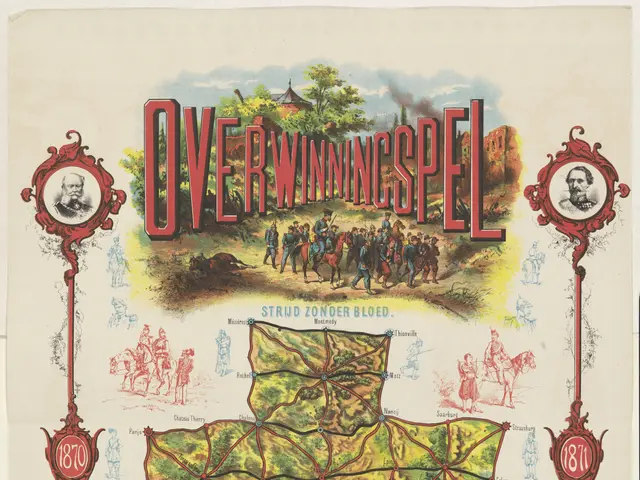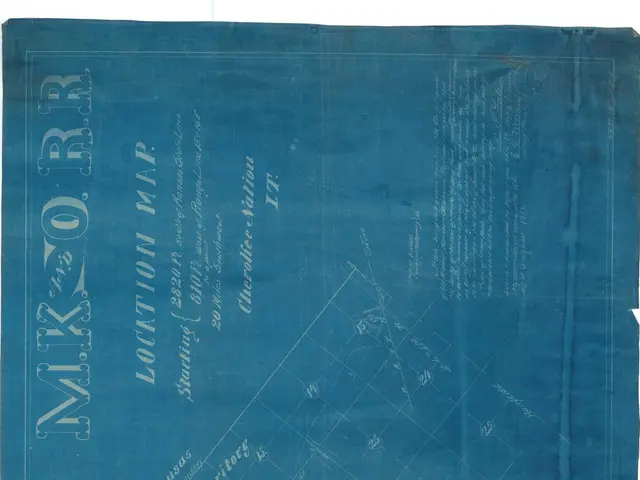Designing a Cultural Identity Test: A Guide
In the digital age, cultural identity quizzes have become a popular means of fostering understanding and appreciation for diverse cultures. Here's a guide on best practices for creating an engaging and educational cultural identity quiz.
Define Objectives Clearly
Decide on the focus areas of your quiz, such as traditions, languages, values, or beliefs, to ensure it encourages learning and respect for cultural diversity.
Use Accurate and Respectful Content
Avoid overgeneralizations and stereotypes in your questions. Emphasize individual variation within cultures and promote understanding of both visible (customs, language) and invisible (values, beliefs) cultural elements, referencing frameworks like the Cultural Iceberg Model.
Incorporate Educational Models
Integrate cultural competence models, such as Campinha-Bacote’s AKSED model or the LEARN communication model, to structure quiz questions that foster awareness, knowledge, skills, and desire for cultural understanding.
Engage Users Interactively
Use engaging quiz formats and catchy titles tailored to your audience to increase participation and enjoyment. Drawing inspiration from popular quiz themes can help create compelling quiz prompts that attract attention.
Promote Open Dialogue and Reflection
Include questions or feedback that encourage users to reflect on their own cultural perspectives and biases, enabling open dialogue and empathy development.
Provide Context and Explanations
Offer explanations for correct answers or cultural facts within the quiz to enhance learning and deepen the user’s cultural knowledge.
Pilot Test and Refine
Before wide release, test the quiz with a diverse group to ensure questions are clear, inclusive, and effective in promoting understanding without offense or confusion.
Use Multimedia and Varied Formats
Incorporate visuals, videos, or cultural artifacts (music, art, stories) within the quiz to provide richer cultural context and make the experience immersive.
By following these practices, you can ensure your cultural identity quiz is educational, respectful, engaging, and successful in fostering cultural awareness and understanding.
To create an even more engaging experience, consider incorporating interactive elements like drag-and-drop, matching, or fill-in-the-blank questions, gamification elements like leaderboards or badges, and storytelling elements or personal anecdotes. The quiz interface should be designed to be engaging and visually appealing, aligning with the chosen cultural themes and enhancing the user experience.
Choose cultural identity themes such as traditions, languages, festivals, or cuisine for your quiz. The purpose of the quiz can be for entertainment, education, or both. Creating a cultural identity quiz can be a fun and educational way to engage with your audience and promote cultural awareness.
Involve individuals from different cultural backgrounds in the development and review process to provide diverse perspectives and ensure inclusivity. Encourage readers to define themselves and explore how others might view them. The quiz structure should be organized, including the number of questions, multiple-choice options, and scoring system. Offering thorough explanations for each question effectively educates and fosters cultural awareness.
Providing educational value is essential. Incorporate well-crafted questions that assess knowledge and expand understanding of various cultures. The target audience for the quiz should be identified and tailored to accordingly. Respect diversity and complexity of cultures, accurately and respectfully representing them in the quiz questions and answers.
The cultural identities mentioned are commonly found in mainstream media. The overall tone of the article is lighthearted and meant for entertainment purposes. Conduct thorough research and fact-checking to prevent misinformation or stereotypes. When creating a cultural identity quiz, consider the concepts of cultural identity and stereotypes. Gather relevant questions that represent the chosen cultural themes accurately and authentically.
In conclusion, creating a cultural identity quiz can be a fun and educational way to engage with your audience and promote cultural awareness. By following best practices and ensuring accuracy, respect, and interactivity, you can create a quiz that fosters understanding and appreciation for diverse cultures.
- To delve deeper into various cultures, incorporate research-based insights about traditions, languages, values, beliefs, and lifestyle practices, such as those found in fashion-and-beauty, food-and-drink, or relationships.
- Design a quiz structure that includes the latest polling data on public opinion about political issues affecting diverse cultures, as it can help determine focus areas and foster enlightening conversation.
- Incorporate educational content reflecting current news and updates about travel, exploring different cultural destinations and their unique customs and behaviors.
- To make the quiz more engaging, include podcast episodes tackling various perspectives on cultural identity from knowledgeable experts and advocates.
- By featuring questions about attitudes and behaviors related to media consumption, you can analyze how popular media shapes general perceptions of various cultures.
- Offer a quiz section dedicated to understanding different travel experiences and their influences on personal cultural identities, exploring both positive and negative impacts.
- In the end, allow users to share their completed quiz results and insights through social media, promoting wider dissemination of knowledge and fostering more open dialogues about cultural identity.





